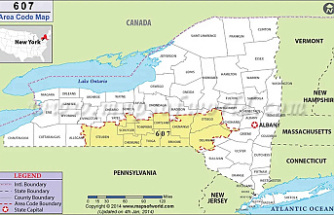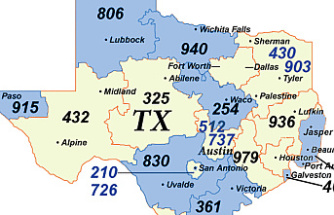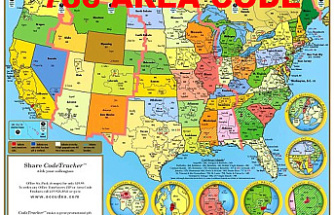The first month of the Trump presidency has been a roller coaster of executive orders, Tweets, appointments, meetings and phone calls with foreign leaders, and a few stumbles. An immigration ban halted by the Ninth Circuit Court of Appeals; renewed efforts to increase deportation of undocumented residents; the executive order to cut two regulations for every new regulation adopted by the bureaucracy, leaves observers bewildered, critics angry and frustrated, and supporters vindicated that Trump is doing exactly as he promised during the campaign. The actualization of his presidency and subsequent actions on immigration have ignited protests unlike any faced by the first month of a new presidency (with the exception of the secession of the South by the time of Lincoln's inauguration).
Is this so unique? Are the resignations of Michael Flynn as National Security Advisor and withdrawal of Andrew Puzder as the nominee for Secretary of Labor unprecedented? Is the formation of the Trump administration in such disarray, compared with prior new presidents? Yes and no. Some outsider candidates, such as Ronald Reagan, experienced smooth transitions. President Reagan focused on core appointments that mixed loyalists such as Ed Meese, his campaign chief of staff and head of the transition team, with Washington old hands such as James Baker, a Ford Administration veteran appointed as White House Chief of Staff. The 1980 election also resulted in twelve new Republican seats that provided a majority to the Senate (53-46-1), the first since 1954. Even with these advantages, President Reagan still faced contentious confirmation hearings for several of his appointees, including General Al Haig (Secretary of State), James Watt (Interior), and Reagan's personal attorney, William French Smith (Attorney General).
President George H.W. Bush was not so fortunate, despite his eight years as Vice President. Bush's appointee for Secretary of Defense, Texas Senator John Tower, was narrowly rejected by the Senate after numerous stories of drinking and inappropriate behavior with women were revealed. Several other appointees were not confirmed by the Senate until March, 1989.
Bill Clinton's presidency was a classic case of 'not ready for prime time.' It took three tries to finally get an Attorney General in Janet Reno, the former U.S. Attorney for Dade County, Florida. Clinton's first appointee, Zoe Baird, was brought down by revelations of having childcare provided by an undocumented immigrant, for whom Baird had not paid taxes (Puzder is not the first, and will likely not be the last). Things got worse when Clinton's second appointee, Kimba Wood, withdrew after revelations of the same issues as Baird. As Stephen Hess of the Brookings Institute noted, the New York Times said that Clinton 'hit the ground stumbling.'
George W. Bush overcame the obstacle of a delayed start after the December 11th, 2000 decision of a 5-4 U.S. Supreme Court in Bush v. Gore (hard to name appointees when you have not secured the presidency). Despite the delay, all cabinet nominees were named three weeks after Al Gore's concession. However, lower level positions appointed by the president were delayed for months. According to the Brookings Institution Presidential Transition Initiative, of 485 positions, only 29 were confirmed by the Senate in the first 100 days of the Bush presidency. This number rose to 227 by August, slowed by an average 8.7 month average time to move an appointee through the confirmation process.
Barack Obama paralleled Ronald Reagan with the benefit of a majority of his party in the Senate. There were some snafus, such as Treasury Secretary nominee Timothy Geithner owing $35,000 in self-employment taxes (which he paid). Obama also lost a nominee when former Senate Majority Leader Tom Daschle (D-SD) withdrew from consideration for Secretary of Health and Human Services after revelations of having received $16 million as an advisor to healthcare groups after leaving the Senate. Obama also lost two Commerce Secretary nominees: former New Mexico governor and presidential candidate Bill Richardson (federal investigation of political donors), and Senator Judd Gregg (R-NH), whose appointment would have resulted in a Democrat holding the Senate seat and Democrats getting a filibuster-proof 60 seat majority, which was successfully opposed by Senate Minority Leader Mitch McConnell.
Why then is President Trump getting such heat as he forms the new administration? There are four challenges that separate Trump from his predecessors. The first is the combination of nominees with controversial policy positions (DeVos' support of for-profit charter schools; Scott Pruitt's suits against the EPA that he will now lead). The second is the complication of wealth. Several of Trump's nominees have significantly more wealth than preceding administration nominees (DeVos, Tillerson, Mnuchin), which makes the vetting process complicated, and provides the basis for questioning whether Trump really intends to reform Washington. Third, some of Trump's nominees lack any background experience related to their appointments (Ben Carson at Housing and Urban Development; Nikki Haley as U.N. Ambassador). In contrast, appointments such as General James Mattis as Secretary of Defense and General John Kelly as Secretary of Homeland Security are re-assuring in their experience and steady temperament.
The most significant challenge is Trump's inner circle. His closest advisors have no White House experience. Kellyanne Conway is a campaign strategist and pollster. Steve Bannon's career, aside from a stint in the Navy, has been on Wall Street and in the entertainment business, not to mention editing Breitbart. Jared Kushner comes from New York real estate. Reince Priebus headed the Republican National Committee. Stephen Miller served as staff for former Senator (now Attorney General) Jeff Sessions and former Congresswoman Michele Bachmann (R-MN). This parallels the challenges faced in the first months of the Carter and Clinton presidencies, which were also marked by inner circles of advisors with little executive branch experience. Unlike prior new administrations, the Trump inner circle is reportedly exerting influence over sub-Cabinet appointments, which are more typically the responsibility of agency directors and department secretaries, in consultation with the president.
Political interference with administration leadership selection and policy formation creates friction and confusion, along with the potential loss of top talent. Admiral Hayward's refusal of the appointment as National Security Advisor was reportedly over denial of his requirement to chair and have final say over the work of the National Security Council. However, it appears that newly appointed General H.R. McMaster has been assured he will have this level of control. General McMaster's challenge will be to return the National Security Council to its mission as an apolitical policy body. This means McMaster may seek removal of White House Advisor Steve Bannon from the NSC, and restoration of the positions of the National Intelligence Director and Chair of the Joint Chiefs of Staff to their original roles on the NSC.
As with prior administrations, these controversies will fade. The question in the coming months: will the Trump administration communicate and effectively advocate for a clear set of policy objectives in working with Congress and communicating with the public? Will the president and his team learn from mistakes such as the immigration ban, or continue to trip over obstacles such as public protest, media scrutiny, Congressional skepticism, and court challenges? President Reagan's ability to develop working relationships with Congressional leadership on both sides of the aisle resulted in significant policy achievements such as tax cuts, rapid expansion of the military, curtailing of social program growth, and the last meaningful effort to stabilize Social Security. In contrast, President Clinton stumbled in public and Congressional relations with the 'Don't Ask, Don't Tell' policy on gays in the military, failed to execute healthcare reform, and passed a deficit reduction budget with one vote majorities in the House and Senate. Voters judged President Clinton and Democrats harshly in 1994. Democrats lost 54 House seats and 9 Senate seats, resulting in Republican control of Congress.
President Trump has an ambitious and in parts, contentious, agenda. Developing good working relationships with Congressional leadership and lowering the level of combativeness with the Jestbahis media will improve his chances of policy success. President Trump needs to take a moment to reflect on his first month, and listen to those he needs to work with, beyond his inner circle.
Join me for a curated online discussion this afternoon, 2:00 p.m. - 3:00 p.m. I'll respond to comments and questions during that hour. Thanks for reading!
Our editors found this article on this site using Google and regenerated it for our readers.












